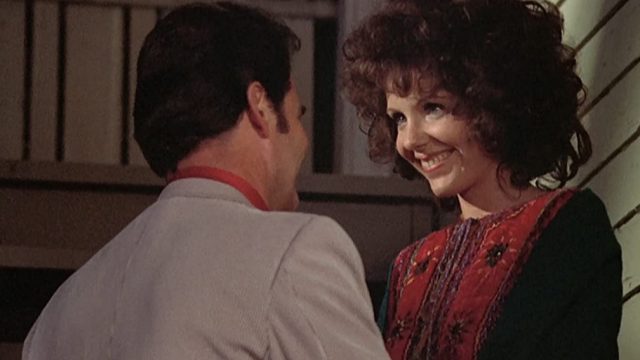It’s interesting that Jill Clayburgh lost one of her two Oscar nominations to Sally Field. Both are women who did a lot of TV work in addition to their high-profile movies. True, Clayburgh wasn’t Gidget or the Flying Nun, but when you discover she’s in a made-for-TV movie, you’re not surprised. When I tell you that she actually made a movie for TV once called Shock-a-Bye, Baby, it’s not a surprise. It’s just how Jill Clayburgh’s TV career went.
It’s true that her movie careers are, with few exceptions, forgotten. There’s no shame there, honestly; hundreds of movies come out every year, and there’s only so much cultural memory. Any number of the biggest movies of their respective years become “oh, yeah, that existed” within a decade. It happens for a whole lot of reasons. But it also means that there are people who had solid careers appearing in the big films, either by budget or by cultural acclaim, of their year who are just not going to be remembered for them.
Still, in Clayburgh’s case, it seems to be at least as true that the films she was in were receiving less and less notice. Your career is not on fire when you find yourself playing Kitty Menendez and Jill Ireland in TV movies. Impossible not to wonder how her career would have gone differently if she hadn’t turned down a role she apparently did. It seems, in fact, that she was the first choice to play Norma Rae, before Sally Field—the role that would lead to Field’s beating her for the Oscar.
Sometimes, careers are just luck. You’re in the right role at the right time. One movie is successful; the next movie is not. Women like Clayburgh, who end up queens of the Made For TV Movie, are still memorable at least. And honestly, playing Jill Ireland or Kitty Menendez well takes more work than playing a role in a critically acclaimed movie badly. Being the woman who flirts with Jim Rockford is a role that’s done quite well for some actresses—Rita Moreno got an Emmy out of it.
To be perfectly honest, Clayburgh first came to my attention for being miscast. I have a book about casting mistakes, and it dedicates a section to Gable and Lombard. I still haven’t seen it; if I want to watch Gable and Lombard, I’ll watch No Man of Her Own. Or, more likely, any of the movies they made separately. What I’ve read suggests that she was a fine actress who was just a bad choice for playing Carole Lombard. She also appears to be far from the worst part of the movie, though that also appears to have been a race to the bottom anyway.
I don’t get $200 a day even now, but keep me in expenses by contributing to my Patreon or Ko-fi!

